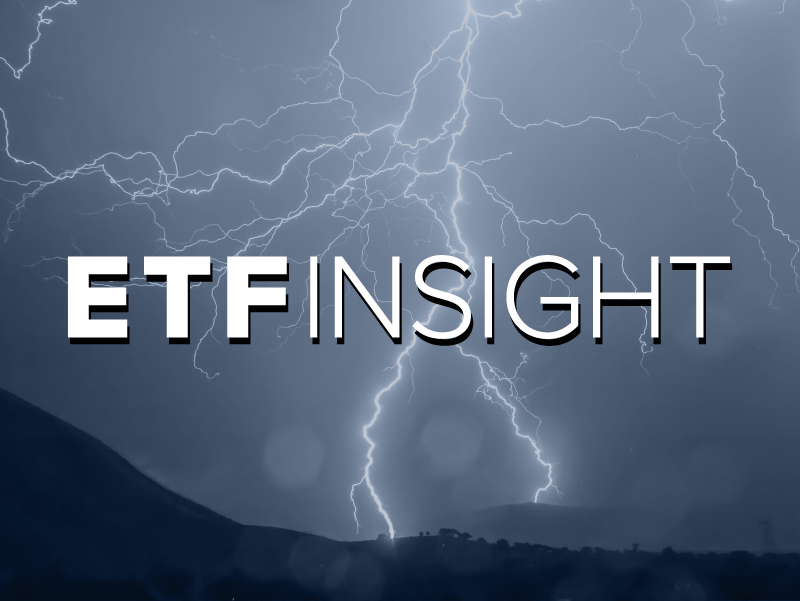An AllianceBernstein research note in 2016 that described ETFs as “worse than Marxism”, given that communists attempted to allocate capital efficiently, caused a major backlash from the passive funds industry, however, the stark comment may prove to be correct after all.
The dramatic increase in ETF usage since the Global Financial Crisis has been well documented. Since 2008, assets in ETFs have risen from $716bn to $5.4trn, as at April.
The majority of these flows have gone into US-listed ETFs, which have $3.8trn assets under management, and in particular, S&P 500 products. One stat which documents this rise is passive US equity funds have equalled their active counterparts at $4.3trn, according to Morningstar.
Benefitting from this meteoric rise has been three asset managers; BlackRock, State Street Global Advisors and Vanguard. Together, they control around 80% of ETF assets in the US in around 600 products.
In Europe, the picture is more competitive. However, BlackRock controls 44% of the assets alone while adding the next two, DWS and Lyxor, takes the figure to 66%.
The Securities and Exchange Commission (SEC) has recently launched an “outreach initiative” to investigate this issue however, findings are yet to be revealed.
With the ‘Big Three’ dominating the flows, this has led to them also becoming the major shareholders in US companies, especially constituents of the S&P 500. For example, in 2014, Apple, JP Morgan Chase and Citigroup’s major three shareholders were the ‘Big Three’ and this is the case for many other US companies.
The major issue with the same asset managers being the major shareholders for stocks in the same industry, academics claim, is it creates competition risk.
A 2014 paper, entitled Anitcompetitive Effects Of Common Ownership, looked into the effects of competing firms having the same asset managers as major shareholders.
It said: “A long theoretical literature in industrial organisation predicts that partial common ownership of natural competitors by overlapping sets of investors can reduce firms’ incentives to compete: the benefits to one firm of competing aggressively – for example, gains in market share – come at the expense of firms that are part of the same investors’ portfolio, reducing total portfolio value.
“Theory therefore predicts that common ownership can push product markets toward monopolistic outcomes, and imply a deadweight loss for the economy and adverse consequences for consumers.”
The paper looked to empirically identify the effect of common ownership concentration on product prices and to “document an effect of consolidation in the asset management industry on portfolio firms’ product prices”.
In particular, the paper studied the price of aeroplane ticket prices between 2001 and 2014 and found prices were 3-7% higher “due to common ownership” versus “a counterfactual world” where firms are separately owned.
Speaking to ETF Stream, José Azar, professor at IESE Business School, Universidad de Navarra, and co-author of the paper, said a logical consequence of the move to index funds from active funds has been the largest shareholders of companies overlap as there is lessening stock selection.
Azar warned this competition issue is potentially beneficial for investors as asset managers – the largest shareholders – would act in their interest however, it is negative for consumers and savers.
He went onto say, if prices can be controlled because of horizontal shareholding, this could have potential macro implications such as secular stagnation, decreasing market power and decline in labour share.
Einer Elhauge, president of Legal Economics and petrie professor at Harvard Law, told ETF Stream investors would be impacted by horizontal shareholdings as, although it can increase profits, it can also create antitrust liability risk.
“The problem is that they are big enough to contribute to anticompetitive effects that could lead to antitrust liability.”
The huge flows into passive products has created competition issues for certain sectors which, in the long term, will impact the US economy.
This issue needs to be addressed by the ETF industry if it wants to avoid once again being labelled as “worse than Marxism”.
ETF Insight is a new series brought to you by ETF Stream. Each week, we shine a light on the key issues from across the European ETF industry, analysing and interpreting the latest trends in the space. For last week’s insight, click here.
Further reading
Anticompetitive Effects Of Common Ownership by Jose Azar, Martin C. Schmalz, and Isabel Tecu (2014)
The Causal Mechanisms of Horizontal Shareholding, Einer Elhauge (2019)


